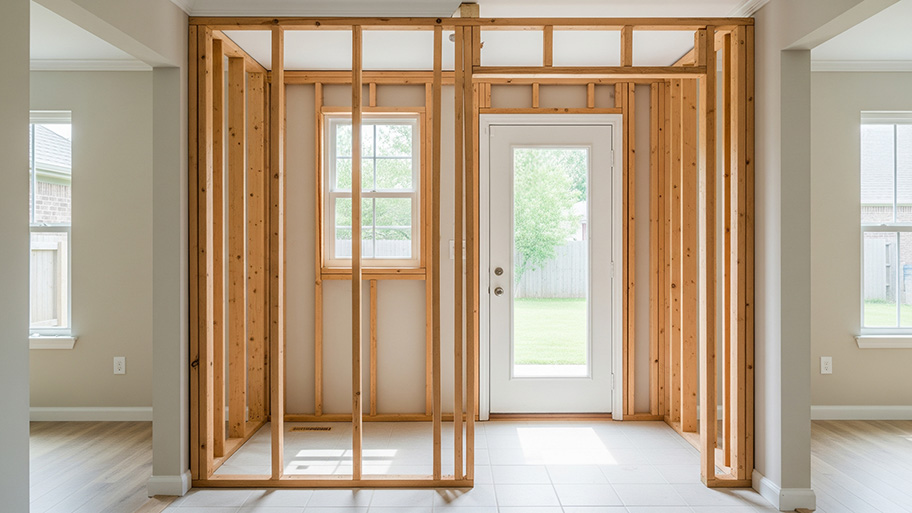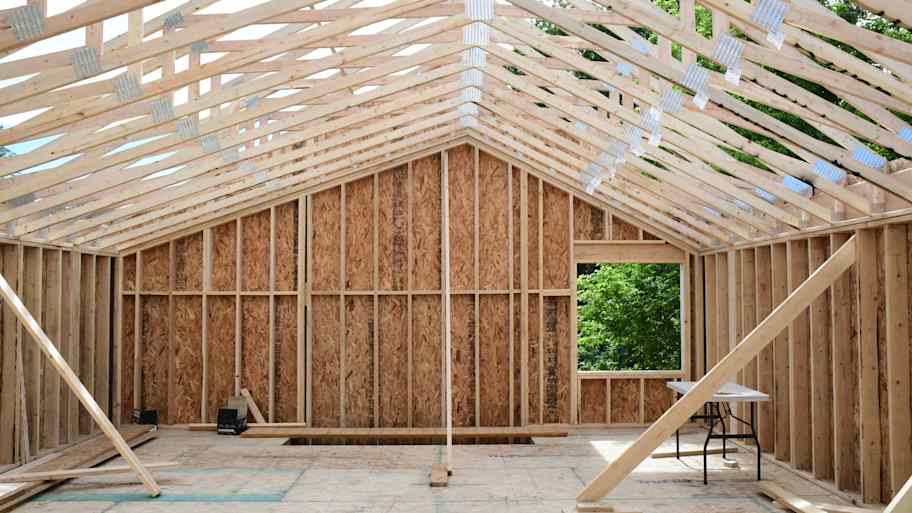
Discover stair repair cost estimates, including average prices, key cost factors, and tips to help you budget for your stair repair project.
Hiring a general contractor takes the headache out of your home build


Ready to build the home of your dreams? You’ll need to hire a contractor to build a house based on your specifications. Here are the hiring tips you need to know to find the right pro.

A general contractor manages the entire house-building process from start to finish. By hiring a contractor to build a house, you’re taking the stress off yourself to manage timelines, budgets, and subcontractors. Contractors typically offer the following services during a home construction project:
Developing a budget
Getting the required permits
Hiring, coordinating, and managing subcontractors for specialized tasks (like electrical, plumbing, or HVAC)
Overseeing the day-to-day construction
Keeping the project on schedule
Paying subcontractors and vendors
Resolving issues
Building the average house costs $139,000 and $526,00, with an average price of $320,000. Since general contractors usually charge a percentage of the total project cost, you might consider taking on the job yourself to save money. If you have previous construction experience, this is certainly an option.
However, building a house is a complex and lengthy project unsuitable for inexperienced general contractors. As a general contractor, you’ll need to hire subcontractors and keep them on track throughout the project. If you act as your own general contractor and make a mistake, you’re the one who must fix it—and construction mistakes can cost you more than you’d save by not hiring a general contractor. In most cases, paying a general contractor to manage your house construction project is well worth the cost.
Hiring a contractor will help your house construction project run more smoothly. Here’s what you need to know about hiring a contractor near you to build your dream home.
Do your research before diving into a remodeling project. Reach out to as many different types of people as you can, from contractors to remodeling companies, to be as informed as possible on all the modern remodeling options available to you.
Before hiring a builder or general contractor, you’ll need a clear picture of what you want your house to look like, its features, and your approximate budget. Do you want a two-story home, a ranch, or a log cabin? How big do you want the kitchen to be? How many bedrooms and bathrooms do you need? Consider your future and current needs to ensure the home you build will suit you for years. An architect can draw up blueprints for your new home—you can hire one independently or ask your contractor for a recommendation.
After you have your blueprints ready, it’s time to start the hiring process. The first step is to check the qualifications of each contractor you’re considering hiring. Licensing and insurance requirements for general contractors vary by state. Call your local building authority to verify the contractor’s license and insurance coverage. You can also check whether your contractor is certified with the National Association of the Remodeling Industry (NARI) by entering their info in the NARI remodeler search tool.
Ask your contractor for a list of references and call a handful of previous clients to ask about their experiences. Check out reviews of your contractor and see if they have any complaints against them. If there are complaints, check to see if (and how) they were resolved. Your state’s consumer protection agency is also a good resource for checking for complaints against the contractor.
Once you’ve vetted several pros, narrow your list to at least three contractors to interview for the role. If possible, meet them in person to discuss the house construction project. You’ll want to ensure they know exactly what you want and communicate well with you. After all, you’ll deal with them for the months-long home construction project. If you mesh well, request a quote for the project, then choose the best contractor for you.
After deciding which contractor to hire, draft a contract outlining the project scope, timeline, and cost. The contract should also list the payment schedule, which can vary by contractor. Many contractors will require 10% up front, followed by three payments of 25% at specific intervals and the remaining 15% upon project completion.
Before hiring a contractor to build your dream home, it's essential to ask them some basic questions:
How long have you been in business?
How many houses do you build per year?
How many projects do you work on at once?
Are you licensed, bonded, and insured?
Do you offer any guarantees or warranties?
Can you provide me with a list of references?
Will you obtain all the necessary permits?
How will payments be handled?
What types of materials will you use?
What is the expected project timeline?
When will work begin and end each day?
What’s the best way to contact you with questions, and how long will it take you to respond?
Choosing the right contractor can make a huge difference in the overall success of your project. Building or renovating a home is stressful, and having a solid contractor to guide everyone through the process can give you invaluable peace of mind.
When looking for a contractor, be sure to do your research. Ask for recommendations from family or friends, read reviews, and check references. You want to be sure your general contractor knows what to expect from your project, so see some of their previous work if you can. It’s also essential to meet with your potential contractors and see how you get along. Depending on the scope of your project, you’ll be working with this person for quite some time, so it’s important that you're on the same page.
Once your new home is ready, do a walk-through to ensure the work has been completed according to your contract. If you notice any issues, let your contractor know ASAP. Once you’re satisfied, arrange for the final payment to the contractor and consider leaving them an online review to help potential clients with their research.
From average costs to expert advice, get all the answers you need to get your job done.

Discover stair repair cost estimates, including average prices, key cost factors, and tips to help you budget for your stair repair project.

Sometimes, all your home needs is a new wall to make a room or provide an updated function to an existing space. Learn how much it costs to install a new wall.

Strong floor joists are the key to a structurally safe home. The cost of floor joist repair will often come down to what is causing the problem.

What is dry rot and how do you manage it? Dry rot is a fungus that attacks wood. Learn how to get rid of it before it causes structural damage.

Are you wondering how much lumber you need for your construction project? This lumber calculator will help you estimate how much to purchase.

A textured, or “popcorn”, ceiling was once a popular home feature. Read on to learn about what a popcorn ceiling is and why it has mostly gone out of fashion.